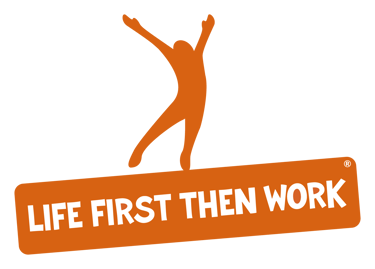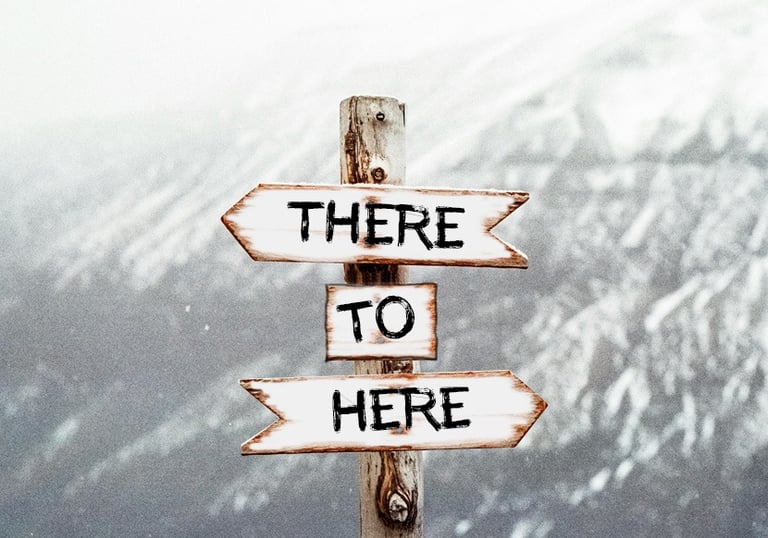A Story of burnout, resilience and change
Burnout isn’t weakness, it’s a systemic failure. This is my lived experience, the hidden load we all carry and why I help businesses take workplace mental health seriously. Get it right and everyone benefits — people, culture and business. There are no downsides.
From there to here
I’ve had a lot of challenges over the years. At 20, I suffered a major head trauma that left me with brain damage. At 25, I had a stroke, which caused further damage and left me with ongoing challenges — concentration, memory and a chronic daily headache. My eldest son was born at 26 weeks and spent four months in three different hospitals battling for his life. He is neurodiverse, which brings its own challenges for him and the whole family.
The reality is that prolonged periods of chronic stress, plus dealing with the system around supporting a neurodiverse child, is almost a full-time job in itself. It creates stress, anxiety and challenges within the household that few people ever see.
On top of that, I live with PTSD from four separate traumatic life events. Some I’ve dealt with better than others — but they all leave a mark. And that’s the stuff you carry into work. It doesn’t get left at the door. It weighs you down.
That’s why it’s so important to acknowledge that everyone is carrying something you know nothing about. How you speak to people, interact and behave could be the thing that breaks them — so be kind.
My mental health has taken a battering over the last 27 years. I’ve lived with depression and found things extremely difficult at times.
Career and the illusion of balance
Professionally, I worked in IT for almost my entire working life. Starting as a technician, I worked my way up to senior roles across three companies in the charity and corporate world.
The phrase “work–life balance” has always irritated me. It’s the wrong way round. Put life first and everything else follows. As responsibility, stress and pressure at work grew, it left less time for family, friends or myself. My mental health and wellbeing deteriorated year by year.
My physical challenges weren’t visible. My chronic daily pain wasn’t visible. Neither was my mental health. That made it easier to hide how I really felt, hide what was really going on. I always thought: how many other people are doing that? Why do we have to? This shouldn’t be normal, the accepted standard.
I once heard a quote I loved but can’t recall who said it:
“If you don’t make time for your wellbeing, you will be forced to make time for your illness.”
It’s true — it catches up with you. But I wasn’t listening to my own advice. I earned the biggest wage in the house, so I felt the pressure to keep going. Having no job or taking less money would add even more pressure, so I’d tell myself: “I’ll just get through this project, this quarter, this crisis. Then I can breathe.” But that moment never came.
In 2019 I took voluntary redundancy. For six months, I recharged, spent time with my kids, got healthier and thought about what was next. I told myself: “All I know is IT — what else could I do?” So I took another IT management role. Within weeks, I was back on the same treadmill. Work came first; life was forced to fit around it.
A global pandemic and an increasingly demanding IT role, I was stressed, exhausted, depressed and desperate. Workload was relentless. My health was deteriorating.
People would say things like:
“You just need to sort out your work–life balance.”
“You’ve got to put yourself first.”
“We’re all struggling.”
But those phrases are dismissive and damaging. They diminish the reality. Everyone is carrying something, but not everyone is carrying the same weight.
Eventually, I burnt out completely. Chronic stress, poor mental health and pressure to keep going caught up with me. I was no good to my family, to my work or to myself. Panic attacks hit me for the first time in my life. I had managed to keep going through major trauma, keep picking myself up, keep moving forward — but you can only take so many big hits and get back up so many times.
Everyone has their own story. Different paths, different struggles but all valid.
The reality of burnout
Burnout isn’t just “a bad week” or “feeling tired.” It’s a full-body crash. Once you hit the wall, you don’t bounce back. Research shows burnout leaves long-term scars — on physical health, mental resilience, even life expectancy.
The World Health Organization recognises burnout as an occupational phenomenon, caused by unmanaged workplace stress.
Studies link it to higher risk of cardiovascular disease, long-term depression and even cognitive decline.
Deloitte reported in 2022 that poor workplace mental health costs UK businesses £56 billion a year — with burnout, absence, presenteeism and turnover all part of that hidden cost.
Burnout isn’t an individual weakness. It’s a systemic failure. It happens when the system pushes people past their human limits.
I am nowhere near where I was before burnout. For some people, recovery might mean getting back to where they were but for many, like me, it leaves lasting scars. Physically, mentally, emotionally, it changes you. It isn’t a quick fix and you don’t just bounce back. The reality is you adapt, you rebuild and you carry it with you — at work and in life.
Why Life First Then Work
For me, “work–life balance” was always the wrong way round. Life comes first or nothing else works.
That’s why I started Life First Then Work.
Too often, workplace mental health is treated as a compliance tick-box or a “nice to have.” I see it differently. Managed properly, it’s a competitive advantage. By making workplace mental health part of the business strategy, businesses can mitigate risk, improve performance, safeguard reputation and protect profit.
I’ve seen it from both sides: as the employee struggling silently and as the leader responsible for a team under pressure. That perspective matters. It means I can help businesses spot the warning signs before they turn into crises. You don’t have to wait for burnout. You don’t have to lose good people before you act.
It’s about acknowledging that people have stuff going on in their lives that impacts their mental health, performance and effectiveness.
Because if workplaces don’t take this seriously, more people will burn out, just like I did. And some won’t come back from it.
If you’re struggling
Life First Then Work isn’t a crisis service but if you need urgent help, please don’t suffer in silence.
Take action.
Immediate threat to life
🚨 Call 999 or go to your local Accident and Emergency (A&E) department if:
Someone has seriously injured themselves or taken an overdose.
You do not feel you or someone else can be kept safe.
There is a risk of physical violence or harm to others.
The emergency services can ensure immediate safety and arrange a mental health assessment.
Urgent help (not immediate threat)
📞 Call 111 and select the mental health option for 24/7 urgent mental health help. You may be able to speak to a trained mental health professional over the phone.
Contact your local NHS urgent mental health helpline directly (these are available 24/7 across the UK). You can find details of your local team by searching online for "NHS mental health crisis team [your local area]".
Free, Confidential Support Lines
These services offer confidential support from trained volunteers and staff, and are available to talk about anything troubling you, no matter how difficult:
📞 Call Samaritans free on 116 123 – 24/7, confidential and non-judgmental
📱 Text ‘SHOUT’ to 85258 to speak to a trained volunteer via text, 24/7
📞Papyrus HOPELINE247: Call 0800 068 41 41 if you're under 35 and struggling with suicidal feelings, or are concerned about a young person who might be struggling. Open 24/7.
📞CALM (Campaign Against Living Miserably): Call 0800 58 58 58 (daily, 5pm to midnight) or use their webchat service for people in the UK who are down or have hit a wall.
🌐 Visit Mind for tools and advice
📞 Mind Infoline: 0300 123 3393 (open 9 am to 6 pm, Monday to Friday)




